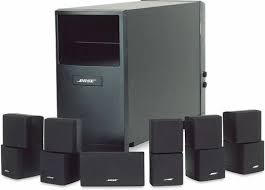Contracts for Difference (CFD) have become a popular choice for traders due to their flexibility and ease of use. CFD trading can provide access to a wide range of financial markets, including stocks, forex, and commodities. However, to profit from CFD trading, investors need to work with a CFD broker. Finding the right CFD broker can mean the difference between success and failure, so it is vital to choose wisely. In this post, we will discuss what cfd broker are, and why they are essential for successful trading.
What are CFD brokers?
CFD brokers are the intermediaries that provide traders access to various financial markets. They offer a trading platform that enables investors to buy and sell CFDs on different financial instruments. The broker earns its profit by charging spreads or commissions on the trader’s transactions. The primary advantage of trading CFDs through a broker is that they offer leverage, allowing traders to open larger positions than their account balance would allow.
What services do CFD brokers provide?
CFD brokers offer a range of services to traders. Apart from providing access to financial markets, they offer educational resources, analysis tools, and professional customer support. Good CFD brokers should provide traders with a robust trading platform that is easy to use and customize. Some platforms offer advanced features like automatic trading, charting tools, and mobile trading applications.
How to choose a CFD broker?
Choosing the right CFD broker is critical for traders who want the best trading experience and profitable trades. Here are some of the factors that traders should consider when choosing a CFD broker:
Customer Support: The broker should offer fast and effective customer support through different channels like phone, email, and live chat.
Trading Platform: The platform offered by the broker should be user-friendly, fast, and feature-rich.
Trading Costs: Look for a broker with reasonable trading costs, spreads or commissions charged by the broker.
Financial Instruments offered: The broker should provide access to a wide range of financial instruments from different markets.
What are the benefits of trading CFDs?
Trading CFDs has several advantages, which make it a popular choice among traders.
Leverage: CFD trading allows traders to open larger positions than their account balance would allow, enabling them to profit from small price changes.
Flexibility: CFD trading offers traders the flexibility of going long or short on financial instruments depending on their market views.
Diversification: With CFD trading, traders have access to a broad range of financial instruments, enabling them to diversify their portfolio effectively.
Low capital requirements: CFD trading can be done with a low initial capital requirement, allowing small investors to participate in the financial markets.
Conclusion:
CFD brokers provide traders with access to global financial markets, enabling them to profit from small price changes. Choosing the right CFD broker is vital for trading success, customer support, trading platform, trading costs, and financial instruments offered. CFD trading offers several advantages like leverage, flexibility, diversification, and low capital requirements, which makes it a popular choice for traders. Whether you are a beginner or an experienced trader, CFDs are worth considering for your investment portfolio.



